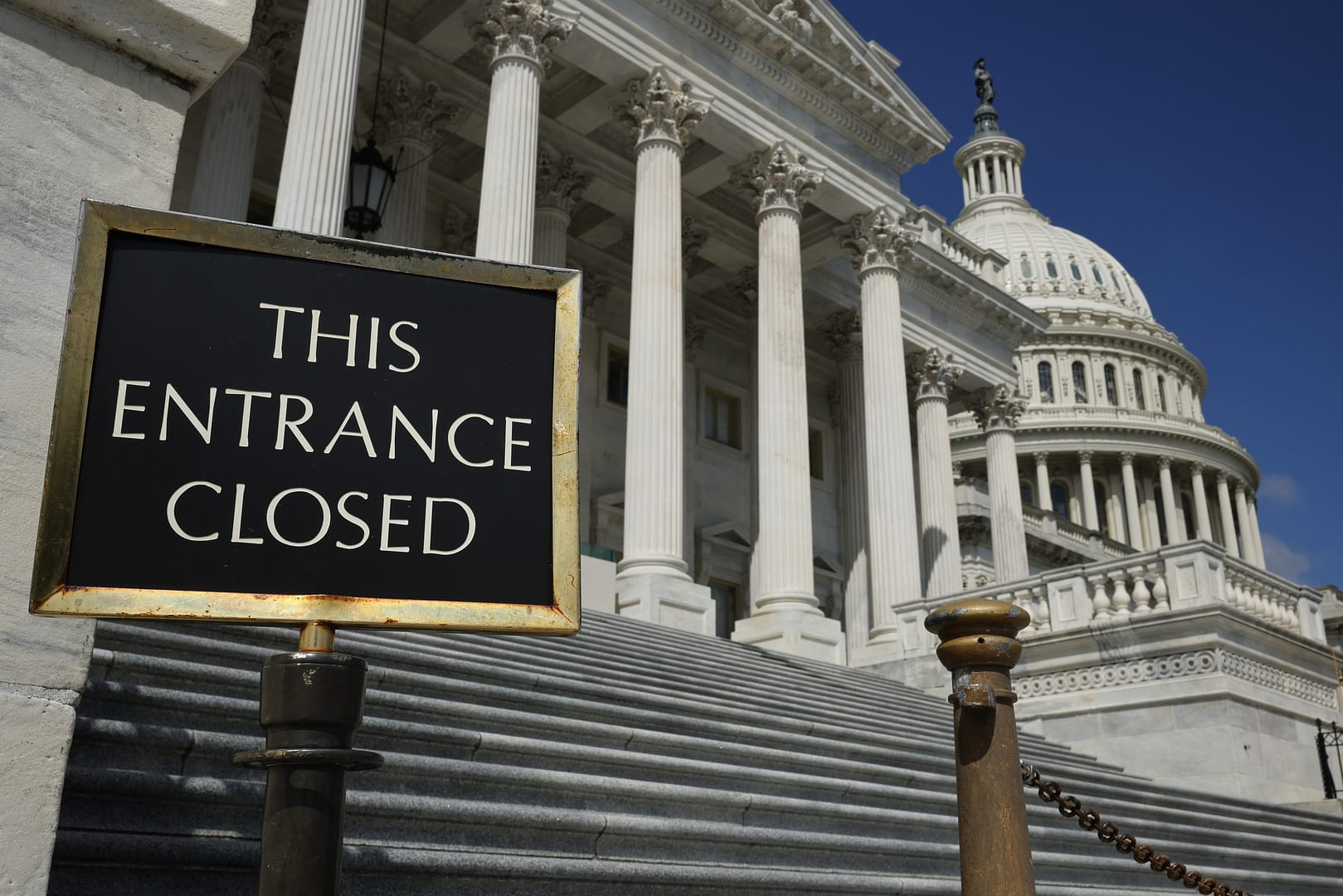As the clock ticks closer to October 1, 2023, the United States government is grappling with the likelihood of another shutdown. While politicians debate on issues like aid to Ukraine, the debt ceiling, and a multi-trillion-dollar social spending plan, the ripple effects of a potential shutdown could extend far beyond the halls of Congress. One sector that could experience some turbulence is the cryptocurrency market.
If you've been wondering how a U.S. government shutdown could impact your cryptocurrency investments or the broader crypto landscape, this article aims to shed some light on the matter. We'll explore various scenarios that could unfold, helping you to make more informed decisions.
Understanding a U.S. Government Shutdown
Before we dive into the scenarios, let's clarify what a U.S. government shutdown actually entails. Simply put, a government shutdown occurs when the U.S. Congress and the President can't reach an agreement on a new spending bill by the end of the fiscal year, which is September 30. During a shutdown, essential services like national security, law enforcement, and healthcare continue to operate. However, a host of other federal activities, including scientific research, educational programs, and public health initiatives, come to a standstill.
Scenarios For The Cryptocurrency Market
Scenario 1: The Flight To Digital Safe Havens
In times of economic or political instability, investors often seek "safe havens" to park their money. Traditionally, assets like gold or government bonds have played this role. However, cryptocurrencies like Bitcoin are increasingly being viewed as 'digital gold'. In the event of a government shutdown, there may be an uptick in cryptocurrency purchases as investors seek alternative ways to safeguard their assets against rising inflation, and a de-dollarization of the U.S. greenback, as in the case of BRICS
Scenario 2: The Limbo of Regulatory Uncertainty
Cryptocurrency markets are still in a relatively nascent stage and are awaiting various regulatory clarifications. A government shutdown could lead to a freeze or delays in any upcoming legislation or decisions related to cryptocurrencies. Whether it's the approval of a new Bitcoin ETF or guidelines on crypto taxation, the regulatory landscape could be left in a state of flux, leading to increased market volatility.
Scenario 3: A Cautionary Pullback
A government shutdown often induces a conservative approach among investors. The uncertainty surrounding such an event may cause people to become risk-averse, moving their funds out of volatile assets like cryptocurrencies and into more traditional and 'safe' investments. This pullback could result in a temporary dip in cryptocurrency prices.
Scenario 4: Halting Federal Blockchain Initiatives
The U.S. government has been exploring the application of blockchain technology in various sectors such as supply chain management, data integrity, and more. A shutdown would likely put these projects on hold, potentially affecting the cryptocurrencies or tokens that are related to these government initiatives.
Scenario 5: Cryptocurrency In the Political Narrative
The political discourse during a shutdown is highly charged, and it's not uncommon for different factions to use various issues as bargaining chips. Cryptocurrencies could find themselves in the limelight for various reasons—either as a symbol of financial freedom or as a subject requiring increased regulation. The resulting media coverage could influence investor sentiment, either positively or negatively.
Chart Context: U.S. Debt Outstanding By Fiscal Year

The chart displays the progression of the United States' debt outstanding from fiscal year 2018 through 2022. The y-axis represents the amount of debt in trillions of dollars, while the x-axis shows the fiscal years. Each point on the line marks the debt level at the end of the respective fiscal year.
Key Observations:
- Rising Debt Levels: The chart clearly shows an upward trend in the U.S. debt levels over the years. This indicates that the country's financial obligations have been growing, adding to the complexity of its economic landscape.
- Accelerated Increase in Recent Years: Notably, the curve becomes steeper in the years 2020 and 2021, suggesting that the pace at which the debt is accumulating has increased. This could be attributed to various factors, such as pandemic relief measures.
Relevance to the Cryptocurrency Market:
- Economic Uncertainty: Rising national debt levels often contribute to economic uncertainty, which can have a mixed impact on the cryptocurrency market. Some investors may see cryptocurrencies like Bitcoin as a "digital gold" and a hedge against such uncertainties.
- Regulatory Implications: As debt levels rise, governments might look towards new revenue streams, including potential taxation of cryptocurrency transactions or assets. This could introduce new regulatory measures that could influence the crypto market.
- Market Sentiment: High debt levels can also affect investor sentiment, making them more risk-averse or cautious. This sentiment could sway investments in riskier assets like cryptocurrencies, either positively or negatively, depending on the prevailing economic conditions.
By understanding the trajectory of national debt, investors in the cryptocurrency market can better anticipate potential macroeconomic trends and make more informed decisions.
Wrapping Up
In conclusion, a U.S. government shutdown has the potential to send ripples through the cryptocurrency market in various ways. These scenarios range from a flight to digital safe havens and regulatory uncertainty to a more cautious approach among investors. As the deadline for a potential shutdown looms, it's crucial to stay informed and be prepared for a range of outcomes.
Whether you're a seasoned cryptocurrency investor or just starting out, understanding the potential impact of global events like a U.S. government shutdown can equip you with the knowledge you need to make informed decisions.
Disclaimer: This article is intended for informational purposes only and does not constitute financial or investment advice. Always conduct your own research and consult with financial advisors before making any investment decisions.
Matt is the founder of TechMalak. When he's not buried face-deep in the crypto charts you can find him tinkering with the latest tech gadgets and A. I tools. He's a crypto investor and entrepreneur. He uses a mixture of A.I and human thought and input into all his articles on TechMalak, further merging man with machine.





